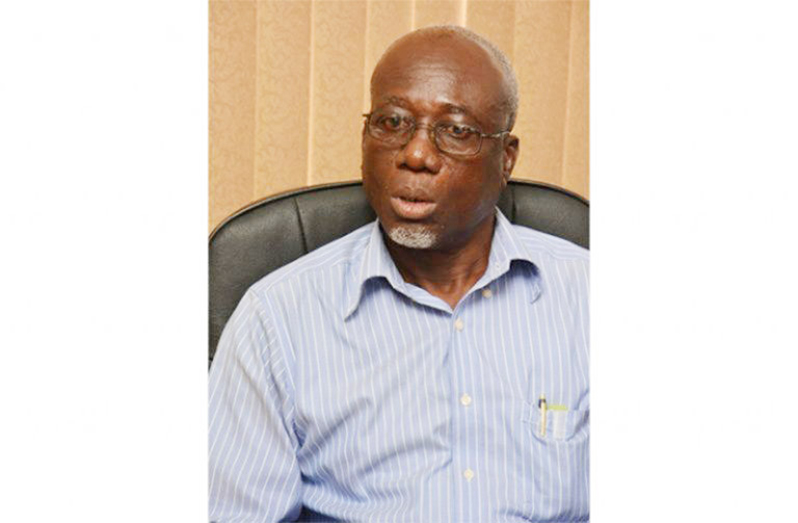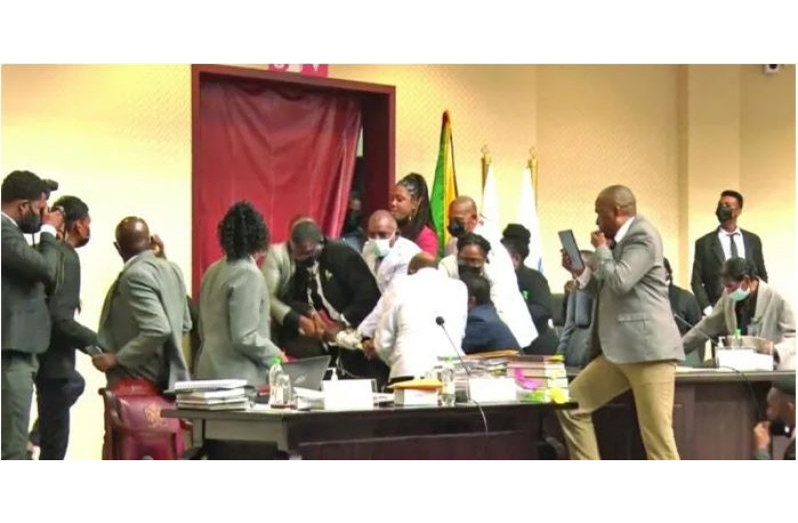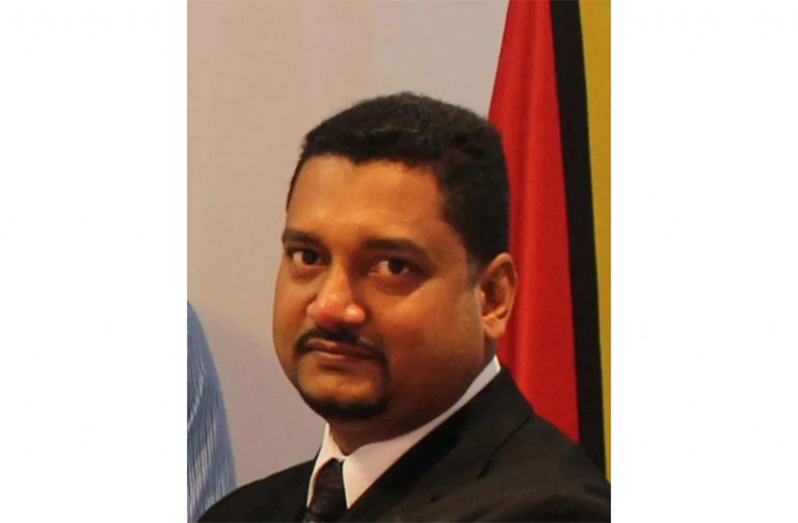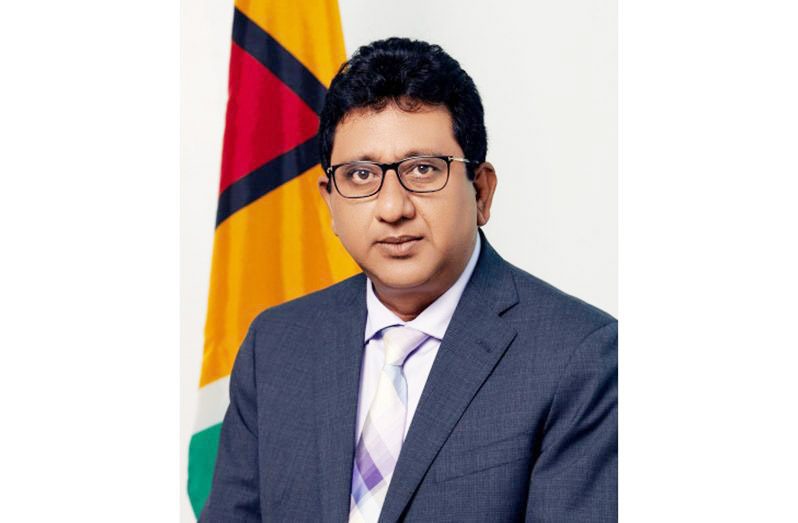THE High Court, on Monday, ruled that the absence of the Mace during the passage of the Natural Resource Fund Bill (NRF) does not render the legislation invalid.
The court dismissed the Opposition’s challenge, noting that the presence of the Mace in the National Assembly is not required by the Constitution or the Laws of Guyana.
The claim was filed by Opposition Chief Whip Christopher Jones and trade unionist Norris Witter, who had moved to the court in April 2022, claiming that the bill was not properly passed in the National Assembly in December 2021, owing to the absence of the parliamentary mace.
The Attorney-General, the Parliament Office, the Minister of Finance, the Speaker and the Clerk of the National Assembly were all listed as respondents.
The claimants had argued that the enactment of the NRF Bill by the National Assembly was unlawful and unconstitutional due to the absence of the Mace, a ceremonial item symbolizing the authority of the Speaker of the House.

However, the court analysed the evidence and concluded that the Mace’s presence or absence does not affect the legitimacy of legislative acts performed by duly elected representatives.
Justice Navindra Singh who presided over the case, stressed that the Mace is merely a symbolic object with no explicit constitutional or legal significance.
The judge further said: “It is illogical to believe that the presence or absence of a length of metal can determine the legitimacy of acts done by persons elected by the citizens of the country pursuant to their elected duties.”
Justice Singh said that the “absence of the Mace in the National Assembly during the passage of the NRF did not invalidate the subsequent passage of the NRF.”
“The presence of the Mace in the National Assembly is not mandated by the Constitution or the Laws of Guyana and, therefore, its absence cannot result in the passage of the Bill being unconstitutional or unlawful,” he said in his ruling.
Moreover, the court criticised the claimants’ argument, calling it “abhorrent and deplorable” to suggest that the legislative power of the nation could be halted by the actions of a few individuals.
The judge highlighted that several Opposition Members of Parliament had already disregarded the Speaker’s call for order, undermining the notion that the Mace’s absence was the sole factor affecting the legislative process.

“…it is preposterous to contend that the legislative power of the nation can be halted by the abhorrent and deplorable actions of a few miscreants,” Justice Singh said in his ruling.
The Opposition’s argument that the Mace is an integral instrument of the speaker’s authority and crucial to the orderly functioning of the National Assembly was deemed unfounded, considering the opposition members’ refusal to adhere to the Speaker’s call for order in accordance with the established procedural rules.
Regarding the continuation of proceedings beyond the specified time stated in Resolution No. 2 of the 12th Parliament of Guyana, the court ruled that the regulation of sitting times is an internal procedural matter under the control of the National Assembly.
The court, however, stated that the judiciary lacks jurisdiction to regulate or pronounce upon alleged breaches of Standing Orders and that the National Assembly is entitled to conduct its business free from judicial intervention, as long as it complies with constitutional provisions and the Laws of Guyana.
According to the ruling: “The time/s for the Sitting of the National Assembly is not mandated by the Constitution or the Laws of Guyana, and nothing in this regard can result in the passage of the Bill being unconstitutional or unlawful.”
The court also addressed the claim that the National Assembly had a constitutional obligation to engage in consultations with stakeholders and the citizenry of Guyana before enacting legislation.
It clarified that while Article 13 of the Constitution provides opportunities for citizen participation in decision-making processes, it does not require the Legislature or Executive to consult with every citizen individually when enacting laws.

VOICE OF THE PEOPLE
The court held that the elected representatives serve as the voice of the people, and the Constitution does not demand that each citizen becomes a representative or that every law requires a referendum.
“The system envisaged by the Claimants effectively nullifies the need for elected representatives since every citizen would still have to be consulted before a law can be enacted. Every Bill would essentially be subject to a referendum,” Justice Singh said.
Regarding the alleged denial of participation to opposition members during the debate on the NRF Bill, the court found that the evidence presented by the claimants was inconclusive.
The court highlighted discrepancies in the testimony of Jones, who claimed to have submitted a speaking list but failed to produce supporting evidence.
The court also related that the Clerk of the National Assembly did not recall the submission of a speaking list, and testified that he did not witness any attempt by an opposition member to indicate their desire to speak.

The court also found that the Speaker of the National Assembly did not fail or refuse to afford or permit members of the Opposition participation in the debate on the NRF Bill.
The evidence presented does not establish that the speaking list was submitted to the Speaker, and there is no record of opposition member, Khemraj Ramjattan, indicating his desire to speak during the debate.
Justice Singh concluded that the claimants’ constitutional challenge to the passage of the NRF Act based on the absence of the Mace, the continuation of proceedings beyond specified times, and the alleged lack of consultation and participation by opposition members could not succeed. He dismissed the case, upholding the constitutionality and lawfulness of the NRF Act.
The Guyana Chronicle had previously reported that on December 29, 2021, in a bid to defend the landmark Bill, which has since been assented to by President Dr. Irfaan Ali, Senior Minister in the Office of the President with responsibility for Finance, Dr. Ashni Singh, was interrupted by what was referred to as the unparliamentary actions of members of the Opposition.
The second reading of the Bill was objected to by Jones, who requested that it be sent to a special select committee.
However, the Speaker of the National Assembly, Manzoor Nadir indicated his preference for listening to the arguments from both sides before determining whether or not the Bill should be sent to a select committee.
Minister Singh then took to the podium, but his presentation was interrupted by members of the APNU+AFC Opposition, who kept banging their desks and chanting demeaning words about the Bill.
After they failed to prevent Minister Singh from speaking, Opposition Parliamentarian Annette Ferguson attempted to remove the Mace, but was unsuccessful.
This unprecedented act was foiled by Nadir’s personal assistant, who held the instrument tightly as he laid on the floor of the Arthur Chung Conference Centre.




.jpg)










